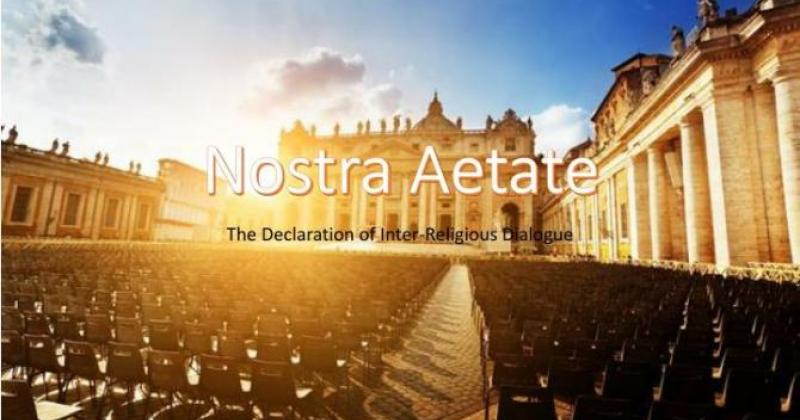In late October 1965, the Second Vatican Ecumenical Council issued an extremely important document named Nostra Aetate, meaning “In our Age”, which tackles the relationships with religions or their followers. The document dedicated some paragraphs to Muslims which reflected the respect and appreciation the Church harbours to the followers of the Islamic religion.
The document states: “The Church has also a high regard for the Muslims. They worship God, who is one, living and subsistent, merciful and almighty, the Creator of Heaven and Earth, who has also spoken to humanity…Over the centuries many quarrels and dissensions have arisen between Christians and Muslims. The sacred council now pleads with all to forget the past, and urges that a sincere effort be made to achieve mutual understanding for the benefit of all, let them together preserve and promote peace, liberty, social justice and moral values.”
With the elapse of half a century on the issuance of this important document, we have the right to consider two views, namely to assess the past and to look to the future in a way that sets the ground for a better future.
In 2005, with the passing away of Pope John Paul II which coincides with the 40th anniversary of the issuance of this document, the Pontifical Council for Interreligious Dialogue issued a number of books and pamphlets which included all contributions on interfaith dialogue. It indicates that the Polish Pope was a distinguished man with regards to dialogue as was revealed in his visits and meetings with followers of religions.
Furthermore, the World Day of Prayer in Assisi in 1986 constituted a distinguished day marking a truce between the warring sides. One of the books listed statements on interfaith dialogue which includes 66 statements by Pope Paul VI, 1,259 statements by Pope John Paul II, 223 statements by the roman curiae, 39 statements on the Church laws and 11 documents by the International Theological Commission.
In the past 10 years, we can recall the establishment of the Catholic-Muslim Forum during the era of Pope Benedict XVI, where the Arabic language was also used to serve as one the languages of the Vatican documents. Furthermore, this very former pope visited Al Hussein bin Talal Mosque in Amman, Al Aqsa Mosque in Jerusalem and the Blue Mosque in Turkey. Nowadays, we note that dialogue in the era of Pope Francis picked up steam in a way acceptable to all parties including the unfaithful. It concentrates on the idea that dialogue serves to bring together the followers of religions to give a helping hand to the poor, to disseminate peace and justice, and to preserve the environment which is “our common home”.
At the local level, our Hashemite Kingdom has taken a leading role in the field of dialogue and rapprochement. Further to the four papal visits to our Holy Land, we are proud to note that “dialogue” in the Middle East started in our country with the launching of intellectual conferences since the 1980s as dialogue-based centers were established, thus making local and universal contributions such as Aal al-Bayt Institute for Islamic Thought, the Royal Institute for Inter-Faith Studies, the Catholic Center for Studies and Media, the Jordanian Interfaith Coexistence Research Center and others.
As for the Jordanian initiatives adopted at the global level, they are numerous such as the Conference of Arab Christians in the Holy Land which was designed to negate any linkage between terrorism and Islam in 2002, the Amman Message in 2004, the Common Word Initiative in 2007 and the Conference on the Challenges Facing Arab Christians in 2013. An anti-discriminatory law, making hate speech a legal offence and imposing a jail terms, was recently launched by the United Arab Emirates, and it is hoped that it will be adopted by all Arab countries.
In conclusion, the elapse of 50 years on the issuance of this document raises our hopes that the conferences and dialogues will break into our homes, schools, streets and work places so that new terms can be used based on citizenship and values of equality rather than on viewing others in terms of majority and minority.
In this context, it is important to quote Minister of Culture Lana Mamkig who recently said at a dialogue conference in Amman:”It must not suffice to respect the differences and coexistence but rather to live the experience with joy.’’
Thus, as half a century has elapsed on accepting differences, let us seek to live the other half happily.
